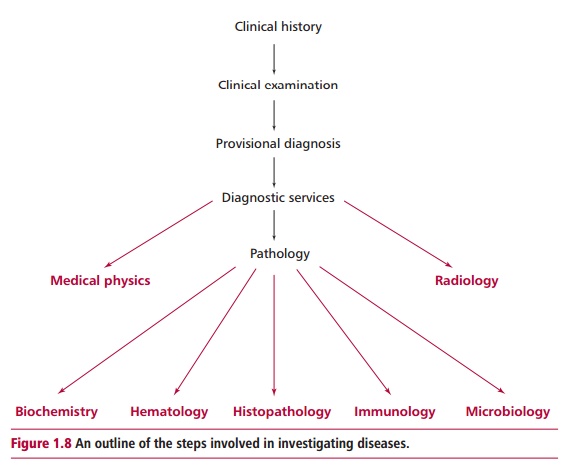Chapter: Biology of Disease: The Nature and Investigation of Diseases
Investigating Diseases
INVESTIGATING
DISEASES
For the
majority of diseases, the clinical outcome is likely to be improved if
treatment is started at an early stage. Consequently the proper investigation
of disease is necessary to ensure a rapid and accurate diagnosis and to allow
appropriate treatment to be initiated as soon as possible. The procedure for
investigating a disease is outlined in Figure
1.8. It starts with the affected person presenting symptoms and visiting
his or her physician when feeling unwell or after a period of ill health. The
examination usually begins with the clinician asking the patient about his or
her current and past medical histories, current and previous medications, use
of alcohol and tobacco, any family history of disease and possibly occupational
history. This is usually followed by a clinical examination to look for signs
of any abnormality. This may involve visual examinations of the skin, eyes,
tongue, throat, nails and hair to detect abnormalities together with tests to
assess cardiovascular, respiratory, gastrointestinal, genitourinary, nervous
and musculoskeletal functions. Since diseases typically present with
recognizable signs and symptoms, the clinician may make a diagnosis of the
disease based on the clinical history and the examination and then initiate
treatment. Sometimes this may not be possible, given that many clinical
symptoms and signs are not specific to any

However, a range of diagnostic services is also available to the clinician in
modern health care systems. These include imaging techniques, physiological
function tests, radiographic examinations (X-rays) and pathology laboratory
investigations that can be applied to confirm, reject or distinguish between
the various provisional diagnoses. The clinician may only be able to make a
provisional diagnosis or a shortlist of possible diagnoses and then request
additional investigations that rely on the diagnostic services available at the
surgery, clinic or hospital.
Related Topics